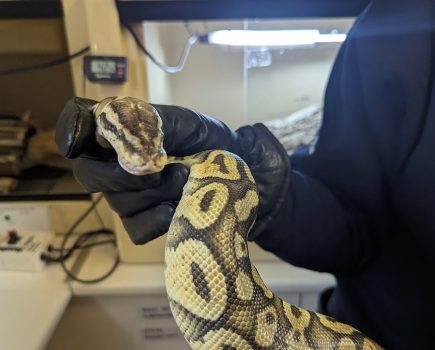This webinar gives farmers, bee keepers & policy makers the chance to reverse the decline of British bees & share best practice
Overview of event
What: A webinar titled “Protecting British Pollinators: Addressing Long Term Threats to Bees and Pollinators”. This symposium will therefore provide an opportunity for local authorities, environmental organisations, conservation practitioners, beekeepers, farmers, and other key stakeholders to analyse current government pollination policy, develop potential strategies to reverse the decline of British pollinators, and share best practice in the protection and management of bee populations.
When: Thursday March 25th 2021
Where: You can register here
Who: Key Speakers Include –
* Ian Fenn, Nature Strategy Team Lead for Pollinators & UK Biodiversity Coordination at Defra
* Vicki Hird, Head of Sustainable Farming Campaign at Sustain
* Pamela Hunter, Master Beekeper and member of the British Beekepers’ Association
* Dr Giacomo Ciriello, Project Manager at Bees for Development
* Sabiha Rumani Malik, Founder and Executive President of the World Bee Project
* Dr Luke Dixon, Co-founder of the Bee Firendly Trust
The importance of bees to agriculture & the current threat
Recent difficulties around the transportation of bee populations due to border constraints imposed by Brexit and the COVID-19 pandemic have underlined the increasing scarcity of native pollinators in Britain, and the potential threat this poses to the British agricultural industry. Three quarters of British crop species either rely on pollination for seed production, or benefit from it in increased yield and quality. However, the UK’s honeybee population is insufficient to supply more than a third of agricultural demand for pollination services, according to the University of Reading. Wild bees and pollinators therefore play a vital role in crop pollination – but research suggests they have declined in diversity and occurrence over recent decades. Defra’s 2020 biodiversity indicator for UK pollinators, measuring wild bees and hoverflies, shows a decline of 30% over the last 50 years; and a study from 2019 found that these pollinators have now disappeared from a quarter of the places in which they were observed in 1980.
According to Living With Environmental Change, pollinators provide increases in yield and quality of crops worth £691 million to UK food production each year. Research published last year estimated that, given a further 30% decline in pollinator numbers, potential loss of UK crop yield could amount to as much as £188 million annually. If current trends in pollinator populations cannot be halted or reversed, British consumers may have to pay more for less diverse and less nutritious produce.
Which policies are currently in place to help bees & pollinators?
Last November the government launched the Healthy Bees Plan 2030. Building on successes achieved under the original Healthy Bees Plan introduced in 2009, it aims to improve the sustainability of honey bee populations by supporting research, providing education and training for beekeepers, and facilitating collaboration between government and members of the beekeeping community.
Under the National Pollinator Strategy, operating since 2014, Defra has provided funding for rural and urban habitat renewal projects such as B-Lines and Urban Buzz, implemented the Pollinator Monitoring and Research Partnership, raised public awareness through the establishment of Bees’ Needs Week and increased engagement with farmers on pollination and Integrated Pest Management through the provision of workshops and online resources.
In their flagship 25 Year Environmental Plan announced in 2018, the government reaffirmed support for further restrictions on the use of neonicotinoids and set out key measures to improve biodiversity and protect and restore the habitats of threatened wildlife, including pollinators. Last January the government passed the Environment Bill, which sets a 10% net gain in biodiversity requirement for all housing and development programmes. This was supported by the creation of Local Nature Recovery Strategies, which delegate authority at local level for the identification of opportunities and priorities for enhancing biodiversity.
The Nature Recovery Network was also established, bringing together representatives from 600 organisations to further the recovery of threatened animal and plant species through the creation of 500,000 hectares of new wildlife-rich habitat across England.
Are the current policies aimed at helping bees working?
A recent study found a 12% increase in the occupancy of a subset of bees identified as key pollinators for commercial crops, suggesting that measures to support bumblebees in farming areas have met some success. However, net trends across subspecies show an alarming decline in overall bee occupancy since 2007. As such, the ambition and scope of recent plans for habitat restoration have been welcomed by stakeholders across the sector. However, Defra’s decision in January this year to reauthorise emergency use of a pesticide believed to kill bees has attracted widespread criticism from various stakeholders. The authorisation is temporary, anticipated to last only until 2023, and was instituted to combat the danger posed by beet yellows virus to British crops. However, critics argue that the policy is a regressive step back which undermines the government’s credibility on pollinator protection and reveals its low priority in the face of shorter term problems.
This symposium will therefore provide an opportunity for local authorities, environmental organisations, conservation practitioners, beekeepers, farmers, and other key stakeholders to analyse current government pollination policy, develop potential strategies to reverse the decline of British pollinators, and share best practice in the protection and management of bee populations.
Program for the webinar
* Review recent government strategies and legislation affecting UK pollinators and discuss their potential impact.
* Discuss the uses and effects of pesticides in British farming and evaluate alternatives.
* Assess the challenges of policy making for issues with longer-term outcomes, and discuss how they might be overcome.
* Identify other major barriers to addressing declining bee populations and discuss potential strategies to combat them.
* Learn about best practices for pollinator protection and integrated pest management.
* Consider the economics of protecting pollinators, including the funding of monitoring and research programs.
* Develop strategies for increasing public awareness about the importance and decline of pollinator species.
* Compare UK pollinator protection strategies and outcomes to other countries, and consider pollinator decline and protection as an international issue.
Image(s) provided by:
Getty Images/iStockphoto







